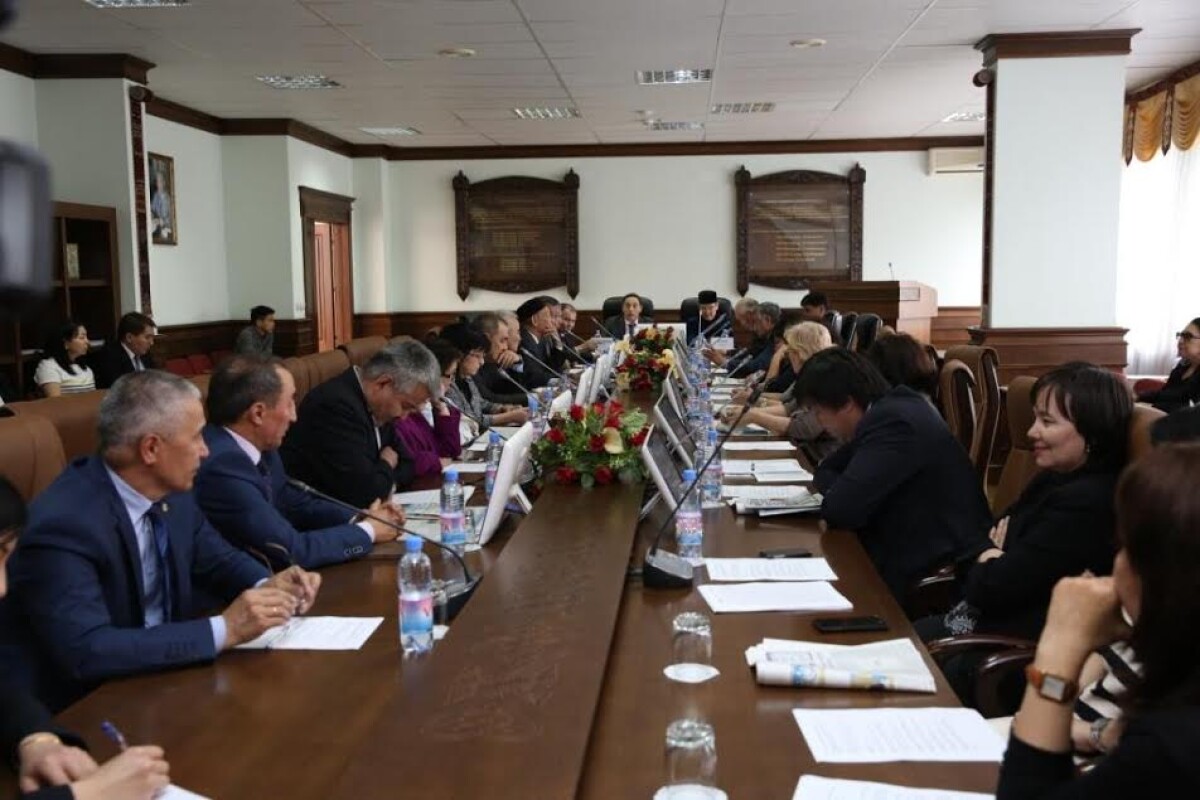
The Gumilyov Eurasian National University hosted a round table to provide the discussion on the 100 concrete steps to implement institutional reforms between the scholars of the university. We remind that the programme of 100 steps was launched by the President of the Republic of Kazakhstan Nursultan Nazarbayev at an expanded meeting of the Government on 6 May 2015.
"The 100 concrete steps are the response to the global and internal challenges and the national plan to become one of the top 30 nations in new historical conditions simultaneously. The plan refers to key changes in society and the state with the main goal to meet systemic problems rather than provide a buffer against their visible expression," the document states.
This plan is focused on five institutional reforms:
— formation of a professional state apparatus;
— the rule of law;
— industrialization and economic growth;
— identity and unity of Kazakhstan;
— formation of an accountable government.
In his opening remarks Dikhan Kamzabekuly, a Vice-Rector on Social and Cultural Development of the Gumilyov Eurasian National University, outlined that the Eurasian University is one of those institutions that have started the work on the explanation of the national programme.
Some proposals arose during the discussion. Thus, Orak Aliyev, Academician, Doctor of Science in Economics, Professor, Vice-President of the Turan Educational Corporation, proposed to develop the three main sectors in our country, including villages, tourism and water industry.
Myrzageldy Kemel, Doctor of Science in Economics, Professor, called for integration of teachers, doctors and figures of culture into the category of public servants. He doesn’t consider that the separation of public servants from other staff of budget-funded organisations and agencies is correct.
Reflecting on the same topic, Naubat Kaliyev, Doctor of Political Sciences, Professor, added that the fundamentals and principles of public service in Kazakhstan have not been defined clearly to date. He also said that state apparatus is a basis of strong and prosperous country. However, it is not appropriate in Kazakhstan.
Rakhmetkazhy Bersimbai, Member of the National Academy of Sciences, Professor, Director of the Institute of Cell Biology and Biotechnology of the Gumilyov Eurasian National University, supported the idea of development of an act on commercialisation of results of scientific and/or technological activity (paragraph 64).
Saule Amandykova, Doctor of Law, Professor, Dean of the Faculty of Law of the Gumilyov Eurasian National University, told about the efficiency of justice as an issue of the rule of law.
Participants of the round table exchanged views on each institutional reform and discussed some current challenges.
